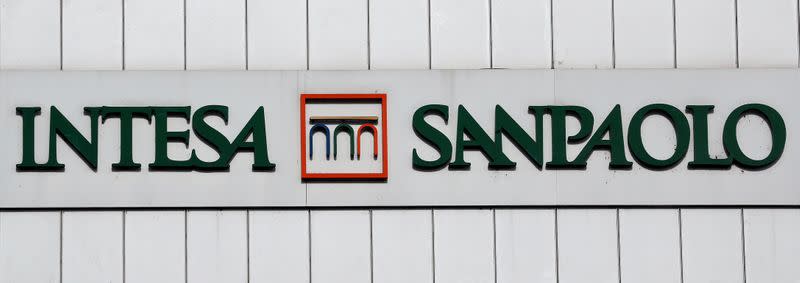UBI crosses swords again with Intesa on value of takeover bid
MILAN (Reuters) - UBI Banca <UBI.MI> on Tuesday fired back at rival Intesa Sanpaolo in an escalating war of words over a takeover offer from Italy's second largest bank, reiterating that the bid does not adequately reward its shareholders.
Intesa formally launched its 3.5 billion euro ($4 billion) all-paper bid on Monday, just days after UBI Banca told its shareholders the offer was not generous enough.
In a statement on Tuesday, UBI reiterated its opposition to the deal, saying it "includes a discount on the fundamental value" of the lender.
Intesa has criticised UBI's stance and warned that shareholders who reject the bid would be left holding UBI shares that no longer included the premium currently priced in by markets.
UBI shares are trading slightly above the 1.7 exchange ratio Intesa is proposing, and analysts have warned the stock would drop sharply if the offer fell through. The bid offered a 23.7% premium to UBI's closing price on the day it was announced.
If successful, the biggest European banking merger in over a decade is expected to spark further consolidation in Italy's fragmented banking sector.
UBI, which had takeover ambitions of its own as the healthiest among Italy's second-tier banks, is fighting Intesa's move.
Intesa said it had met consumer groups on Tuesday to provide clarifications on the offer, which runs until July 28. Consumer associations would oversee the participation of small savers, Intesa said.
Investors had tendered 0.17% of UBI's shares on the first day.
The last few days will be crucial for a take-up which hinges to a large extent on the response of local shareholders.
UBI's institutional investors are largely expected to back the deal unveiled in February just before COVID-19 hit Italy. Intesa argues the pandemic makes cost-cutting a priority.
Last week UBI updated its financial forecasts to reflect the virus crisis, raising expected loan losses and cutting profit goals.
UBI on Tuesday defended its decision to increase proposed dividend payments partly through asset sales, a move analysts say may irk regulators who have asked lenders to preserve capital buffers.
(Reporting by Valentina Za and Andrea Mandala; Editing by James Mackenzie, Jan Harvey and Edmund Blair)



